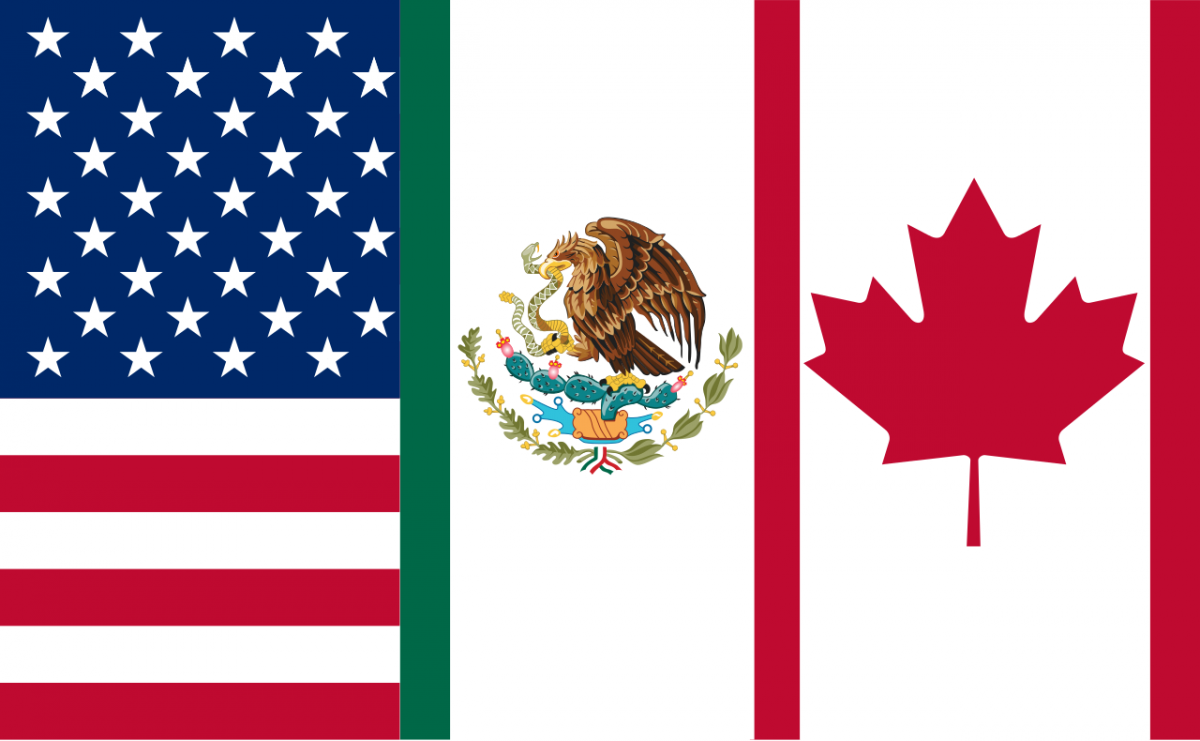NMPF Advocates for U.S. Dairy Priorities in Upcoming NAFTA Talks
July 6, 2017
 As the United States, Mexico and Canada move closer to talks on re-negotiating the North American Free Trade Agreement (NAFTA), NMPF is emphasizing the importance of strengthening our trade relationship with Mexico and addressing Canada’s habitual anti-free trade policies in dairy.
As the United States, Mexico and Canada move closer to talks on re-negotiating the North American Free Trade Agreement (NAFTA), NMPF is emphasizing the importance of strengthening our trade relationship with Mexico and addressing Canada’s habitual anti-free trade policies in dairy.
The Trump Administration formally launched the NAFTA modernization process in May when it notified Congress of plans to proceed with renegotiating the 24-year-old trade pact. Through joint comments, hearings and high-level meetings, NMPF has delivered a strong and clear message: U.S., negotiators must preserve the successful relationship of open and dependable dairy trade with Mexico that has been established through NAFTA while addressing Canada’s protectionist dairy policies, including that nation’s harmful new pricing schemes.
On June 12, NMPF and the U.S. Dairy Export Council pledged to work with the Trump Administration throughout the modernization process to achieve these goals. In joint comments to the U.S. Trade Representative, the groups described the existing North American dairy landscape as one in which U.S. dairy products flow relatively unhindered to Mexico, but are curtailed by Canada’s exorbitant tariffs and increased use of policy tools hampering free trade and violating international trade obligations.
“The relationship between the dairy sectors of the United States, Mexico and Canada is of such great importance to all of our nations that we need to devote the time and effort to make it better,” said Jim Mulhern, president and CEO of NMPF. “A modernized NAFTA agreement must preserve the strategically valuable trade relationship with Mexico, and remove remaining barriers to trade with Canada that were not adequately addressed in the original agreement.”
These same priorities were emphasized in a resolution approved unanimously by the NMPF Board of Directors at its June 14 meeting in Washington, D.C.
NMPF reminded the Trump Administration last month that a modernized NAFTA has the potential to increase U.S. dairy exports, create jobs and build business partnerships between the three countries. On the other hand, withdrawing from NAFTA could devastate the U.S. dairy industry. Last year’s dairy exports to Mexico – America’s top dairy export market – equaled the milk output of 1,500 American dairy farms.
One of NMPF’s top requests of the Trump Administration is for a “decisive confrontation and resolution” of nontariff concerns, including the removal of Canadian milk pricing classes 6 and 7. This is a point NMPF hammered home during recent months, including most recently when National Milk was joined by an international coalition of nine other dairy organizations from the United States, Argentina, Australia, New Zealand, Mexico and the European Union in a coordinated effort to ask that their respective trade ministers confront Canada’s policy.
NMPF’s main concern in NAFTA for Mexico is ensuring that this critically important trade relationship is not in any way disrupted. This includes prioritizing new rules for a sanitary and phytosanitary chapter, and taking further steps in NAFTA to protect the ability of U.S. companies to sell cheeses with common names, like "parmesan" and "asiago.” An aggressive ongoing effort by the European Union (EU) to claim sole ownership of these cheeses must be rejected by Mexican and U.S. officials, NMPF told trade officials last month.
NMPF has also been deeply involved in shaping the NAFTA dairy negotiation strategy through engagement with administration staff, through both private, high-level meetings and at public hearings. Shawna Morris, NMPF’s vice president for trade policy, spoke before the International Trade Commission’s hearing on NAFTA tariff issues on June 20, while Jaime Castaneda, NMPF’s senior vice president for trade policy and strategic initiatives, testified at a USTR hearing on NAFTA modernization on June 27. Mulhern has been actively engaged in the administration’s Agricultural Policy Advisory Committee for Trade, which provides input on the NAFTA negotiations to USDA Secretary Sonny Perdue and U.S. Trade Representative Robert Lighthizer.
Since NAFTA’s implementation, the United States has shifted from being a consistent net importer of dairy products to being a significant net exporter. Over the past five years, cumulative U.S. dairy exports are more than double the import total. Last year alone, the U.S. dairy industry exported $1.2 billion worth of dairy products to Mexico. Mexico is the largest U.S. dairy export market by far, roughly double the size of the industry’s second-largest market, Canada.






